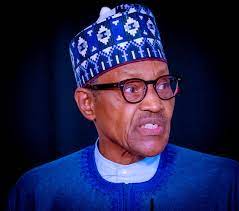President Muhammadu Buhari claims that one of Nigeria’s major problems is a lack of investment, especially from outside the country.
President Muhammadu Buhari said this yesterday in a speech at the Nigeria International Economic Partnership Forum, which was held in conjunction with the 77th session of the UN General Assembly in New York.
Professor Ibrahim Gambari, his chief of staff, said in President Muhammadu Buhari’s keynote presentation that Nigeria’s economy was ready for further investment.
However, private money flows into Nigeria, primarily in the form of foreign direct investment, have slowed, making it more difficult to finance projects that would improve access to natural resources and infrastructure.
President Muhammadu Buhari claimed that one important strategy being used was the Integrated National Financing Strategy, which sought to integrate and align public and private financial policies, regulatory frameworks, instruments, and business processes with sustainable development in order to increase the financing envelope for Nigeria’s sustainable development goals and increase the impact of financing on sustainable development. This strategy will heavily include the private sector.
“The power industry is recognized as a vital driver for Nigeria’s industrialization,” the president stated. In order to improve our energy security, I started construction on the 614-kilometre Ajaokuta-Kaduna-Kano gas pipeline project in July 2021.
“This important infrastructure project will spur industrialization throughout the nation when it is finished, and our administration also gave the national guarantee for it.
You can read more of such stories at The Cheer News
Energy Transition Project To Design 840,000 Jobs By 2060 – Buhari
Buhari Has Upgraded Power Supply In Nigeria – Adesina
Buhari To Exhibit 2023 Budget In October— Gbajabiamila
Additionally, the first phase of the Presidential Power Initiative will increase the reliability of the electricity supply for nearly 40 million people and generate 11,000 direct and indirect jobs for Nigerians.
The level of instability brought on by Boko Haram and other terrorist groups like ISWAP as well as banditry and abduction groups across Nigeria has also had a severe influence on our efforts, according to President Muhammadu Buhari, who was speaking about the situation. Thankfully, we are resolving these kinks with enormous stability possibilities that foreign direct investments may rely on. The benefits and drawbacks of investing in Nigeria outweigh the difficulties by a wide margin.
Nigeria needs debt relief to reduce its debt burden, according to Akinwunmi Adesina, President of the African Development Bank (ADB), who spoke at the event.
According to President Muhammadu Buhari, a number of African nations face a high risk of debt distress as a result of unstable and unmanageable debt levels. Nigeria has a total debt of N42.8 trillion ($103 billion), and its external debt is N16.61 trillion ($14 billion), according to him.
“I firmly believe that Nigeria must address its debt and that in order to assist Africa and Nigeria, international cooperation on the debt would be necessary,” he stated.
According to the National Integrated Infrastructure Master Plan, Nigeria will require $759 billion in overall financing to sustain infrastructure during a 23-year period between 2020 and 2043.
The ADB president stated that Nigeria “has impressive investments that are globally recognized.” The newly built $10 billion Dangote Petrochemical and Fertilizer complex, which includes the largest ammonia plant in the world and is located in a free trade zone with a new port, is exactly the kind of massive industrial manufacturing and infrastructure required to transform Nigeria into a regional and global powerhouse for the aviation, gasoline, and diesel industry value chains.
Nigerian National Petroleum Company Limited’s Group Chief Executive Officer, Mele Kyari, urged the international community to refer to stolen oil from Nigeria as “blood oil.”
Kyari asserted that Nigeria required cooperation from the international community since oil savings had supporters.
He also urged the AFRIEXIM Bank to think about working with the NNPCL to accomplish its goals.
According to Nigeria’s Minister of Finance, Budget, and National Economy, Zainab Ahmed, digitalization and other tax systems have been used to systematically stop income leakages.
“Some unsuccessful tax incentives are currently being examined; some that have returned with maturity will not be extended,” the speaker continued.
She stated, “We’re trying to make sure we’re receiving value for the capital they’re providing. There may be certain awards that have been presented.”
Godwin Emefiele, the governor of the Central Bank of Nigeria (CBN), warned that interest rates would continue to climb in an effort to rein in inflation while speaking at the summit.
“I am not going to give anyone any assurance that we won’t continue to tighten policy or hike interest rates as long as inflation stays at the present rates that we have witnessed,” Emefiele said. We have observed how concerns about inflation have caused a notable halt in global growth.
He claimed that the Fed also raised rates in the recent few days, the second time by nearly 3% already and that the Swedish Central Bank had increased rates by their greatest margin in the last 30 years.
“You could imagine what that means for the world economy if the US Fed raised rates this year, one year by 2%.”
You can read more of such stories at The Cheer News and Credible News
